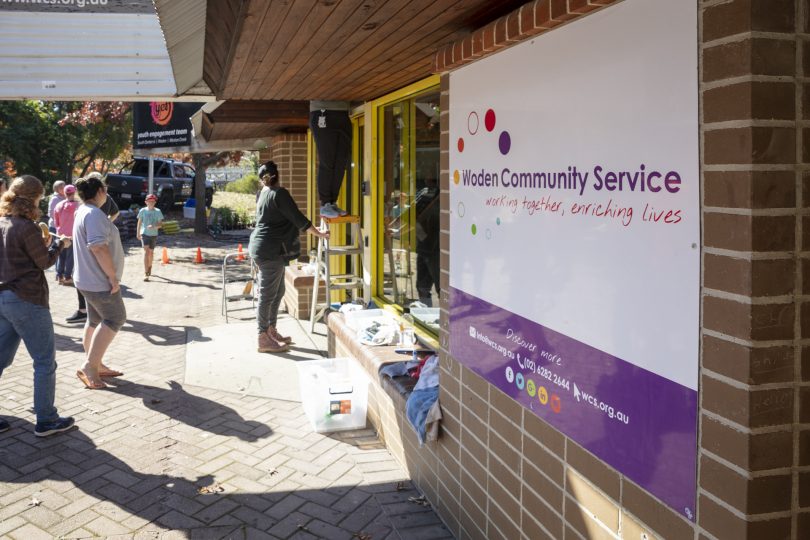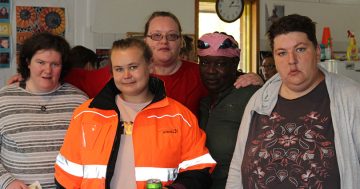
Organisations like Woden Community Service have seen an increase in demand for their services. Photo: Thomas Lucraft.
The ACT Council of Social Service (ACTCOSS) is calling on the government to do more to fund community services at a time when more and more Canberrans are struggling with rising living costs.
Of the community sector staff surveyed by ACTCOSS, 56 per cent said that levels of poverty and disadvantage had increased among the people they support in 2022, and 66 per cent said that cost-of-living pressures were the biggest issue affecting the community.
“We have seen a rising demand in our emergency food relief services. Ordinarily, our primary group would be people on Centrelink benefits or on very low incomes. However, that is changing, with many more employed people who are struggling to pay their bills and reaching out for assistance,” CEO of Woden Community Service Jenny Kitchin told Region.
“In our Supportive Tenancy Service, we are seeing an increase in people whose tenancies are at risk due to the inability to afford the often very high rents in private rental properties.”
At the same time, financial pressures are making it harder for community services to support people in need. More than a third (38 per cent) of respondents said that they had noticed more difficulty in securing funding compared with previous years, and 84 per cent reported that funding did not cover the full costs of service delivery.
“The findings from the survey tell us that the community sector in the ACT is struggling to meet demand as many individuals and families struggle with increased levels of poverty and distress,” ACTCOSS interim CEO Dr Gemma Killen said.
“Cost-of-living increases over the last few years and a spiralling housing affordability crisis have meant more and more people are turning to the community sector for support,” she added.
Community organisations are also facing additional infrastructure costs due to the growing focus on regulatory compliance, technological developments and data collection, “which are often funded inadequately”, according to Ms Kitchin.
“Often, we are having to skimp and save to get services onto the ground.”
Rising living costs have also had a knock-on effect on the community sector workforce.
“There is a chronic workforce shortage in the care and community sectors at the moment, therefore attracting staff in a highly competitive environment is difficult,” Ms Kitchin said, adding that rising rental costs in Canberra have deterred young people from the surrounding country regions to work in the ACT.
Recent data from the Everybody’s Home housing campaign found that essential workers in the ACT – including many working within the community sector – were spending as much as 78 per cent of their income on rent.
“We have a number of care workers in our children’s services, disability and aged care programs who are struggling to make ends meet.”
Volunteers have been able to return to WCS since the COVID-19 lockdowns, which has “[filled] an essential gap”, but there is still a need for skilled and qualified workers across the community sector, and these ongoing difficulties have meant that organisations like WCS are unable to offer services to everyone who needs them.
This issue has been compounded by the fact Canberra’s population is rapidly growing, particularly in new developments like Molonglo.
“Often our workers are very stretched in trying to meet the demands of many service users approaching WCS for assistance … We often have to scale back what we can offer simply because we do not have the workers to staff our programs.”





















